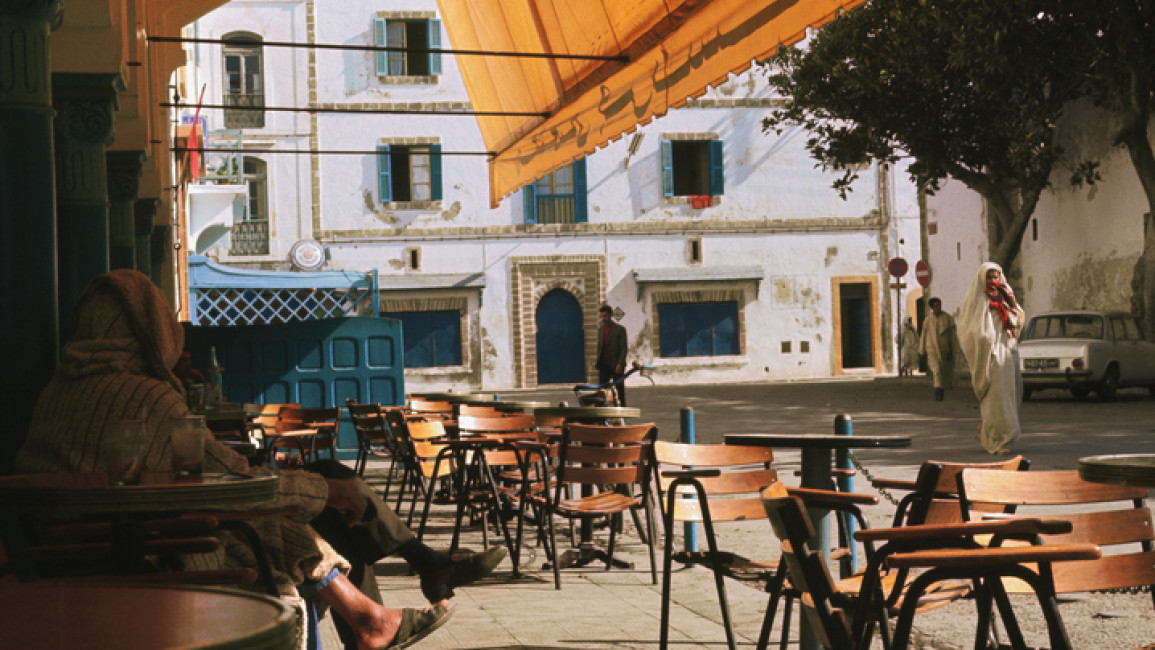Morocco: Mass arrest of non-fasting people at Casablanca café, forced period tests
At least fifty people were arrested on Wednesday by Moroccan authorities for eating during the day of Ramadan in a massive crackdown on a café in Casablanca.
On Wednesday afternoon, the police forces stormed Café La Cadence in Casablanca and caught "red-handed" around fifty adult men and women having lunch during the day.
Those arrested left the "crime scene" with their face covered to avoid journalists' cameras and questions. Moroccan media broadcasted live videos from inside the café showing "the evidence of the crime": unfinished tacos and french fries.
The bizarre event evoked a heavy debate on social media. Moroccan human rights NGOs, activists and journalists have all condemned the Hollywood-style police crackdown under a government that claims to be liberal.
كل التضامن ✌🏾✌🏾 #stop222 pic.twitter.com/AT6cJqadkT
— Moroccan Outlaws 490 (@MoroccanOutlaws) April 27, 2022
Meanwhile, several other Moroccan users saluted the authorities' efforts "to preserve the Islamic identity of the country."
لذلك يجرم القانون الإفطار العلني، و يعتبره مسا بمشاعر العامة ،نحن لسنا السويد، قانون تجريم الإجهار بالإفطار نهار رمضان وضع لردع التسيب و الفوضى
— Mohamed Ouamoussi محمد واموسي (@ouamoussi) April 27, 2022
المغاربة يعظمون شهر رمضان، ولا يقبلون بينهم من يفطر في نهار رمضان عمدا،هذا واقع و ليس رأيا 👇
The debates escalated when Moroccan Outlaws, a movement for personal freedoms, shared testimonies from several women who were arrested, saying a female police officer strip-searched them to check if they were menstruating before they were released.
"A female employee working at the police station verified if the women arrested really have their periods. They made a list of those who were proved to be in their periods and they were released immediately," said a testimony the Outlaws shared on Twitter.
The rest of the detainees were released late at night, without any further information about their case.
According to the Moroccan penal code, breaking fast in public during Ramadan day is a crime, unless it is justified by a reason allowed by the religion.
"He who is notoriously known for his belonging to the religion of Islam, ostensibly breaks the fast in a public place during the time of Ramadan, without reason allowed by this religion, is punished with imprisonment of one to six months and a fine of 200 to 500 dirhams ($US 20 to 50)," says article 222 from Morocco's penal code.
In Islam, there are several reasons that allow a person not to fast during Ramadan, including women who are going through their menstrual period or postnatal bleeding, are pregnant or breastfeeding, as well as the elderly and people with critical health conditions.
In particular, the news that the arrested women were subjected to forced period tests disturbed many Moroccans, who slammed the authorities' "humiliating, misogynistic and illegal techniques."
"It's against the law and unacceptable to humiliate women like that. When I read the news it gave me flashbacks of the virginity test scandal in Egypt. They are similar misogynistic processes that do not respect women or religion that they claim to have much respect for," Dounia, a Moroccan 23-year-old student, told The New Arab.
In 2011, a group of women in Egypt were subjected to forced virginity testing by the Egyptian army. Under international pressure, the doctor who conducted the operation to examine the activists' virginity was taken to court. But the court ruled his acquittal in 2012, upsetting dozens of "his victims."
Ghizlane Mamouni, a lawyer and activist in Moroccan Outlaws, explained to The New Arab that further evidence proving the period tests' process could lead "to a dangerous case" against the police.
"If the arrested women proved to be subjected to period tests that could lead to a dangerous case, especially that they were examined by a policewoman, not even a doctor. Period tests are illegal and they exploit the bodies of the women examined," Mamouni told The New Arab.
Since 2019, Moroccan Outlaws has been calling on the Moroccan government to reform the penal code and remove several articles that abuse Moroccan citizens' personal freedoms, including article 222.



